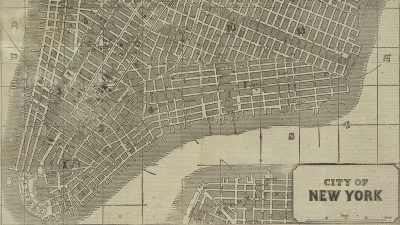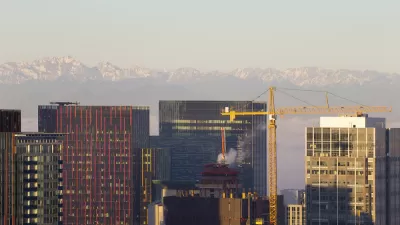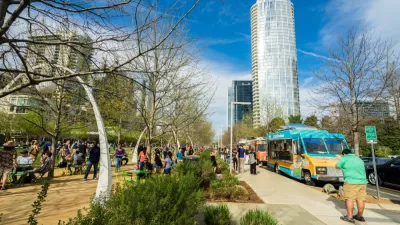The city's proposed comprehensive planning bill could create a more equitable and collaborative planning process

The New York city council's proposed comprehensive long-term planning bill, write Danny Pearlstein and David Tipson in the Gotham Gazette, "has the potential to foster a more equitable and rational planning process to guide land-use changes in New York City." However, the authors caution that "comprehensive planning is about much more than land use" and involved decisions that affect "education, transportation, public health and safety, sustainability," and all aspects of city life. Comprehensive planning could end the "piecemeal" decision-making that has crippled the city's development policies.
The authors argue that the lack of meaningful, comprehensive design guidelines lead to a host of urban problems such as overcrowded schools, excessive traffic and damage to local roads, and dead streetscapes. A "formal process that provide[s] meaningful opportunities for the community to engage in planning" can address these issues and bring forward important community concerns early on. Comprehensive planning promises a pathway to adherence to "clear and immovable guiding principles such as racial justice, reduction of segregation in schools and neighborhoods, net creation of affordable housing, and prioritization of public transit and pedestrian safety and accessibility" through multi-agency coordination and collaboration.
"New York City’s exceptional size, complexity, and competing needs only increase the necessity of a formal and predictable planning process." The proposed amendments to the comprehensive plan would "enshrine better public transit," "give local communities a real opportunity to plan proactively without being allowed to override the public good of the city as a whole," and "ensure that the plan will actually guide official decision-making."
FULL STORY: Comprehensive Planning is Not Just About Housing and Zoning

Manufactured Crisis: Losing the Nation’s Largest Source of Unsubsidized Affordable Housing
Manufactured housing communities have long been an affordable housing option for millions of people living in the U.S., but that affordability is disappearing rapidly. How did we get here?

Americans May Be Stuck — But Why?
Americans are moving a lot less than they once did, and that is a problem. While Yoni Applebaum, in his highly-publicized article Stuck, gets the reasons badly wrong, it's still important to ask: why are we moving so much less than before?

Research Shows More Roads = More Driving
A national study shows, once again, that increasing road supply induces additional vehicle travel, particularly over the long run.

How Protecting Kauaʻi’s Forests Safeguards Fresh Water
A University of Hawaiʻi study shows that protecting Kauaʻi’s native forests from invasive species significantly boosts groundwater recharge, making it a cost-effective strategy to secure fresh water and enhance climate resilience.

Gary, Indiana to Expand Transit Service, Bike Share
The city plans to launch a bike share system in April and expand service on its bus routes.

Pittsburgh Rolls Out Electric School Buses
Pittsburgh Public Schools has launched its first electric school buses, with plans to fully electrify its fleet over the next 14 months, aiming to create a cleaner, more sustainable transportation system supported by new charging infrastructure.
Urban Design for Planners 1: Software Tools
This six-course series explores essential urban design concepts using open source software and equips planners with the tools they need to participate fully in the urban design process.
Planning for Universal Design
Learn the tools for implementing Universal Design in planning regulations.
City of Moreno Valley
Institute for Housing and Urban Development Studies (IHS)
City of Grandview
Harvard GSD Executive Education
NYU Wagner Graduate School of Public Service
City of Cambridge, Maryland
Newport County Development Council: Connect Greater Newport





























